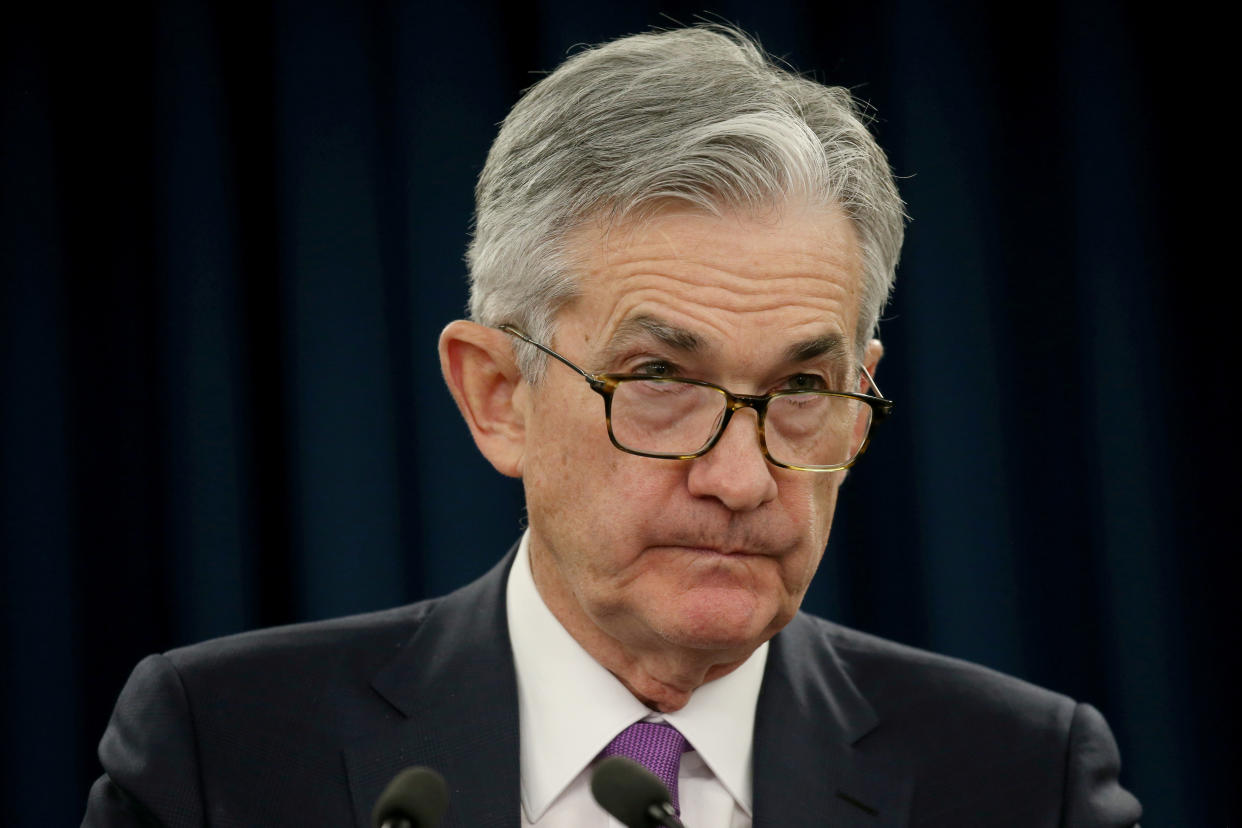Fight over Fed emergency loans holds up COVID-19 stimulus, unemployment checks
Congress appears close to a $900 billion deal for a second round of major coronavirus relief, but the Senate is running into last-minute disagreement over how to handle the Federal Reserve’s emergency loan programs.
Republican senators, led by Pennsylvania’s Pat Toomey, are attempting to slip in a provision that would bar the central bank from re-opening nine market backstops that are set to expire on December 31, citing low uptake of the Fed’s facilities.
Toomey reportedly said Thursday that his proposal would not allow the next administration to “just create a carbon copy and call it a new one.” White House economic adviser Larry Kudlow said Friday that those in the executive branch “are strongly in support” of Toomey’s view.
Democrats argue that the GOP is trying to tie the hands of the incoming Biden administration, which may otherwise want to restart or ramp up those programs under Treasury Secretary-designate Janet Yellen.
“It's not acceptable that Pat Toomey's problem is that he doesn't like Janet Yellen,” Senator Jeanne Shaheen (D-New Hampshire) told Yahoo Finance in a Friday interview. “There's a time and a place to talk about that - he'll have a vote on the Senate floor."
The Biden administration worries the provision would “hamper” the ability to fight back if economic conditions worsen.
“Congress’s good faith effort to deliver immediate relief should not be delayed by provisions that could put our future financial stability at risk,” said Brian Deese, President-elect Joe Biden’s pick to head the National Economic Council, in a statement on Friday.
The snag threatens to hold up the entire bill, which would include a fresh round of stimulus checks in the $600 to $700 range, in addition to an extension of two expiring unemployment insurance programs.
To extend or not to extend?

The Fed’s so-called liquidity facilities were designed to prevent lockups in financial markets, like those for corporate bonds and municipal debt. Other programs, like the Main Street Lending Program, offer loans to nonprofits and small and medium-sized businesses.
The facilities were authorized and stood up using funds allocated to the Treasury, using money from the Coronavirus Aid, Relief, and Economic Security (CARES) Act passed in March. With approval from the Treasury, the Fed leaned on its powers under Section 13(3) of the Federal Reserve Act and opened up 13 programs to prevent financial market freeze ups.
However, many of those programs saw low rates of utilization. For example, the Main Street program was designed to support up to $600 billion in loans. Yet as of December 16, only about $10 billion in loans have been made.
The drama over the Fed facilities follows the public fallout between the central bank, which preferred extending the programs, and Treasury Secretary Steven Mnuchin, who delivered the orders to wind them down.
The Fed has acknowledged Mnuchin’s authority to close the programs down. It is following the directive to not only let the programs expire at year end, but also to return unused CARES Act money.
For his part, Mnuchin has insisted that the order was not political, and that he was following a reading of the CARES Act that required a December 31 “termination date.”
But the nonpartisan Congressional Research Service said Thursday that the CARES Act “does not appear to impose any limitations on the Secretary's discretion to extend the operation of [the facilities] in which the Secretary has invested CARES Act funds before December 31, 2020.”
Toomey has said the intent of Congress was as Mnuchin interpreted. The GOP senator’s proposal would codify that the programs could not be resurrected or recreated, even if Yellen felt the need to do so.
Fed Chairman Jay Powell has said the central bank could always consider new emergency loan programs but only within statutory limits.
“We can't do any 13(3) facilities without the approval of the Treasury Secretary,” Powell said Wednesday.
Brian Cheung is a reporter covering the Fed, economics, and banking for Yahoo Finance. You can follow him on Twitter @bcheungz.
Fed Chair Powell: Coronavirus vaccine is the ‘light at the end of the tunnel’
Fed to maintain aggressive asset purchases until ‘substantial further progress’ on recovery
FOMC preview: Fed's words on quantitative easing 'speak louder than actions'
Less-educated Asian Americans among hardest hit by job losses during pandemic
A glossary of the Federal Reserve's full arsenal of 'bazookas'
Read the latest financial and business news from Yahoo Finance
Follow Yahoo Finance on Twitter, Facebook, Instagram, Flipboard, SmartNews, LinkedIn, YouTube, and reddit.
